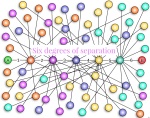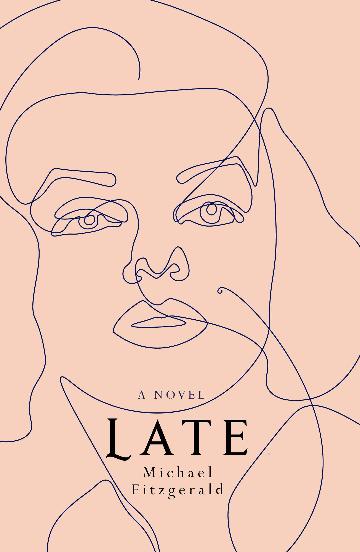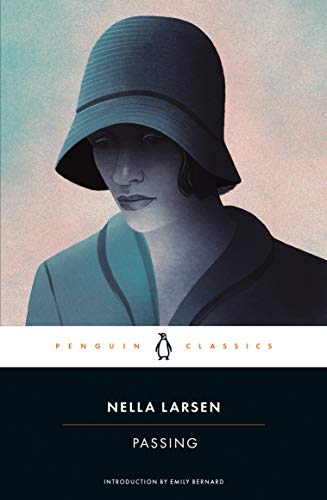Today is the first day of winter here in Australia, and we can feel the chill in the air here in Ngunnawal/Ngambri country (or Canberra). I don’t like winter, but my new home (apartment) has the best aspect and we get sun streaming in most of the day in winter (if there is sun, as there mostly is here). I am so so happy. My last home had a good aspect, but also a good verandah so most of the sun landed on the verandah. But, let’s get to the meme … and if you don’t know how the #SixDegrees meme works, please check host Kate’s blog – booksaremyfavouriteandbest.
The first rule is that Kate sets our starting book. This month she set “a crime novel with difference”, Asako Yuzuki’s Butter, which, of course, I haven’t read. GoodReads says it is about “a female gourmet cook and serial killer and the journalist intent on cracking her case, inspired by a true story” and that it is “a vivid, unsettling exploration of misogyny, obsession, romance and the transgressive pleasures of food in Japan”.
Now, before I go to my next link I’m going to introduce it by saying that after my review of Late, I had an enjoyable email correspondence with one of my wonderful commenters (whom I will leave to out herself if she’d like) about the title. At the end of our to-and-fro, we decided that single-word titles were a trend – and then what do you know but, for this month’s Six Degrees, we have been given a single-word title. So, this chain is going to comprise all single-word titles, but with another link too, if I can manage it. My first is Michael Fitzgerald’s Late (my review), and my link is that, although it is not a crime novel, its background is the gay-hate crime wave in Sydney in the 1980s. So, the link is from the hate of misogyny to gay-hate here.
Nella Larsen’s Passing (my review) deals with another sort of hate, racism, and the practice of light-coloured people passing as white in order to avoid that hatred and its attendant discrimination. It also contains a death that could be a fall or suicide or murder, which provides another link to the gay deaths in Sydney, many of which were treated as accidents or suicides rather than murders.
My next link is a crime novel. It starts with a cold case and uncertainty about whether the missing girl – the sister of the protagonist – had run away or been abducted and/or murdered. What did happen to her? What happened is the question we are left with at the end of Passing, and is also a question returned to many years later about the deaths of some of Sydney’s young men. The book is Shelley Burr’s rural noir debut, Wake (my review).
Staying with crime, I am moving to the only crime genre novel to have won the Miles Franklin Award, Peter Temple’s Truth (my reviews). (Have I made you happy M.R.?) It’s a crime novel, set mainly in the city, but as well as the crime novel link, I’m noting a loose climate-change link. The farm at the centre of Burr’s Wake is struggling, partly due to the father and daughter being distracted by their grief over the missing daughter/sister but also due to the impact of climate change. In Truth, we do get into the country sometimes, where the detective father’s property is being threatened by bushfire. As Australians know, bushfires are increasing in frequency and intensity here due to climate change.
Next, stay in Australia, and Catherine McKinnon’s Storyland (my review) which links to Truth on the climate-change issue, as well as the single-word title. Storyland traces the trajectory of Australia’s land from an almost pristine state at the dawn of colonisation through increased farming to climate-change-caused destruction in 2033 followed much later by a mysterious post-apocalyptic world in 2717. It starts as an historical novel and concludes a dystopian one.
This leads nicely to my last link, Rebecca Campbell’s Arboreality (my review) which is dystopian climate change fiction set in near future Canada, where the land has been devastated but people are using their ingenuity to find new ways of living.
So, all single-word title novels, in which the titles vary in their intent, but are mostly multi-layered conveying aspects, like setting, plot, character and, in particular, something about their themes. I can’t see much of a link between Butter and Arboreality, except for – yes – their single-word titles, but we’ve been on a challenging journey this month through Asia, Australia and the Americas that confronts some of the world’s harder issues. Two of my six writers this month were male.
Now, the usual: have you read Butter and, regardless, what would you link to?








Degree one will be the short story “Terrible Fugu” by T. Coraghessen Boyle, a swipe at literary critics with a restaurant critic as their stand-in. Since fugu a) is Japanese, and b) can kill you (which I hope counts as transgressive), I think it fits nicely.
Degree two will be 1845, The Year of Decision, by Bernard DeVoto. A number of characters who first appear as mountain men or emigrants end up as meals. In general, the book is well worth reading for those interested in American history.
Degree three, to pull back a bit from the grimness, will be Mark Twain’s A Tramp Abroad, for its passing tribute to American cooking, and for its complaints about European cooking. (The recipe to carve a fowl in the German fashion: “Use a club and avoid the joints.”)
Degree four, to show that Americans are not all cannibals or complainers, will be Bill Buford’s Heat, about his apprenticeships in Italian kitchens. Nobody dies, but Buford does manage to set his apron on fire while wearing it. (And then to escape without damage to his person.)
Degree five will have to be Jonathan Franzen’s novel The Corrections. One of the main characters is a cook, and leads what might be thought a transgressive enough life. Franzen is very good at the language of restaurant critics–of late twentieth-century consumerist rhetoric generally.
Degree six will be The Supper of the Lamb: A Culinary Reflection by Robert Farrar Capon. He quotes his father to the effect that any gentleman should be able to prepare a light dinner without removing his jacket. (I think that I could, but the jacket might require cleaning, which is probably not what the old man had in mind.)
Oops. DeVoto’s book is The Year of Decision, 1846.
Oh I’ve enjoyed your food-focused links George. And yes, I accept your argument that fugu as a potential killer could be seen as transgressive. I’m glad we moved quickly on from men as meals. I haven’t heard of that book or the author. But thanks for the title correction. Is there something specific about 1846 in American history?
I have only read the Franzen. I have read a couple of T. Coraghessan Boyle novels and a couple of short stories. As a Japan-lover I’d love to read this one.
Your last comment made me laugh. I sometimes wear and apron but more often than not I risk it. Jackets are expensive to clean you know!
In 1846, the US and Mexico began the Mexican War, and before year was out the US had captured New Mexico and most of California. It was also the year of the Wilmot Proviso, a Congressional attempt to ensure that slavery would not be introduced in areas acquired by the war. (The attempt failed, but added to the mutual distrust of North and South.) And 1846 was a year of heavy emigration–the historian Francis Parkman traveled west and wrote up his travels in The Oregon Trail.
I like your links, how clever! I’ve read four of the books you linked to.
Thanks Jennifer… It’s a fun challenge isn’t it?
It certainly is!
Haven’t noticed single-word titles being a trend but now that you’ve said it, I expect I’ll see them everywhere.
Funny how that happens, Kate. If you don’t you can come back and correct us!
All good ones , Sue! I haven’t read any but I’m especially interested in Aboreality. It’s so odd how the same starter can land so many places. I just did my own 6Degrees but it won’t be up until tomorrow.
Thanks Bekah. I imagine you would enjoy Arboreality. I look forward to your 6 Degrees tomorrow.
Hooray! I’ve read a couple of the books in the link. I would link Butter to works by Japanese female authors with a feminist perspective and the first book in the link would be Kitchen by Banana Yoshimoto. The next book would be Out by Natsuko Kirino and Grotesque also by Natsuko Kirino. I couldn’t think of any more single word titles by female Japanese authors so the next linked books on the list are Breasts and Eggs by Mieko Kawakami, Convenience Store Woman by Sayaka Murata and finally Territory of Light by Yuko Tsushima.
Thanks Carolyn … I love that you’ve had a go. Kitchen is a great choice. I limit my chain to books I’ve reviewed on my blog so Kitchen and Out, both of which I’ve read are, well, Out! I haven’t heard of Kawakami or Tsushima.
You’ve read Convenience Store Woman and Grotesque too I remember.
Yes, I’ve read Benjamin Convenience store woman. I was just naming those that I read before blogging. I have Grotesque which I think you gave me as well as Out (?) but I think I’ve only read Out. I keep looking at Grotesque on the TBR shelves!
Of course I haven’t !! but I have been made ALMOST happy by your inclusion of my favourite novelist’s award-winning book. 🙂
P.S. Things are complex my end: it’s family on more than one level. But soon it will be done and I shall be back to the life I love. Like, doing not a lot. Thank-you for asking, you excellent woman !
XO
“Almost” happy is good!
Just as long as you are OK. I miss your posts and your comments. But am glad you are hanging in there and ok enough! Here’s to being more than ok soon.
Nicely done single word titled books, and… you connect immediately to our next starter book, Kairos!
Haha, you are right Davida … I knew the next book but hadn’t clocked to that.
Nice work! Some very interesting books in your chain.
Thanks Lisa.
What a brilliant chain – very clever!
Thanks Joanne …
Very clever with all those single word titles! I recently acquired a copy of Arboreality and I’m very much looking forward to reading it soon. I have not read Butter, but I think I would have gone with an obvious connection and linked to books either about food or that had food as an important element. I read a nonfiction book recently called Small Farm Future by Chris Smaje, so maybe I’d start with that one. But now of course I’m off thinking about books about farming and gardening 😀
Any food related link sounds fair to me, Stefanie. I hope you like Arboreality. i think you will.
There was a trend for a while for very long book titles (The 100 year Old Man Who Climbed Out The Window and Disappeared for example. ) So glad to hear the tide is turning more towards common sense 🙂
Oh yes Karen, good point. I remember some of those. So hard to remember!
Good ones! The starter title at first brought this Butter to mind, which I’ve recently added to my TBR: https://www.penguinrandomhouse.com/books/717408/butter-by-gayl-jones/
One of the Gails/Gayls that I consistently muddle up in my busy reader’s mind. Really must get them sorted! heh
What a coincidence, Marcie. Your butter sounds interesting too. Great cover.
I don’t know many Gails, let alone Gayls. I feel for you!
A wonderful chain, I loved your idea of linking the whole chain through using single-word titles and then double linking one to the other as well! The only one I’ve read of these is Passing and it was from your review of it that I decided to–very glad I did because it turned out to have many more layers than I initially expected!
Thanks Mallika. I remember our Passing link, and I love that you remember it too.
What an interesting link, from Butter to Arboreality. And I like the idea of linking single-word titles. From your list, I’ve read Passing and watched the movie. And while I was writing my newest post I thought about your six degree of separation, for me, it’s from Virginia Woolf’s The Years to Downton Abbey. It came naturally, for they share the same time period. BTW, your new apartment sounds like a wonderful place just by your telling about sunlight. 🙂
Thanks Arti … it is a wonderful place. I’ve finally got just the aspect I’ve been wanting for a long time. And I like your links!